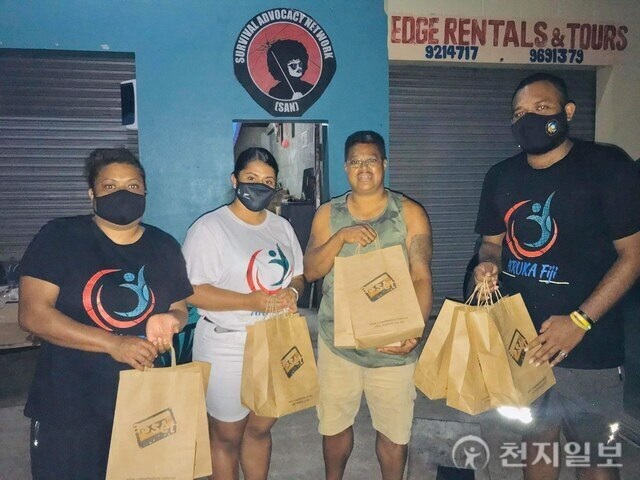What is the best gift for all children around the world? It is peace. In the celebration of the “2020 National Children’s Month”, a webinar was held on the subject of “Peace: Best Protection for Children’s Rights Theme” in the Philippines on 28 November 2020. In addition to the Philippines, 667 people from Nepal, Indonesia, and Rwanda attended, which was a time for the citizens from all over the world to promote the rights of children with a Facebook live broadcast.
The event began with the cheerful voices of the children, the protagonists of the event. IPYG, a group of youth taking the lead in building a world of peace, had time to encourage students through interviews during the pandemic situation. Mrs. Victoria Chingtoco-Yu, the Chairwoman of the Girl’s Scout of the Philippines in Pila, Laguna, Samahan ng Babaepreneur, gave a presentation on “Peace at Home: Our Legacy to our Children.”
She promoted the importance of the families where the children see and experience values and urged the people to participate in HWPL peace education, which contains the values for children to become messengers of peace, such as gratitude, consideration, sacrifice, forgiveness, etiquette, compliance, courage, etc.
During her interview, Mrs. Victoria Chingtoco-Yu, the Chairwoman of the Girl’s Scout of the Philippines in Pila, Laguna, Samahan ng Babaepreneu, stated, “I am grateful to have these wonderful responsibilities and duties to
(1) Co-facilitate the promotion of peace education and peace initiatives in the Philippines;
(2) Encourage educational sectors to include HWPL Peace Education in their curriculum; and,
(3) Encourage government, youth, and women’s organizations in the Philippines to carry out activities and education to raise peace awareness to leave a sustainable peaceful society as a legacy for future generations.”
Although the event was held online, the presenters’ firm belief in peace was conveyed, and the audience was able to recognize the meaning of peace that the children need most and build up their willingness to participate in building peace.
During the pledge for children that followed, all participants raised their right hand energetically and pledged to achieve peace for children together. We look forward to a bright future of children to lead a happier and more peaceful life through peace, the best protection for children, and through those who are developing HWPL peace education to foster peace messengers.
#PHILLIPPINES #PEACE #HWPL #CHILDREN
#RUSSIA #UN #DPCW_1038
#PEACE_WALK #HWPL
#UKRAINE #ROMANIA
#WARP_OFFICE
#IPYG #IWPG
Philippines’ Children’s Month
“Let us Melt the World Frozen by COVID-19 with Peace Education”
🎼



















